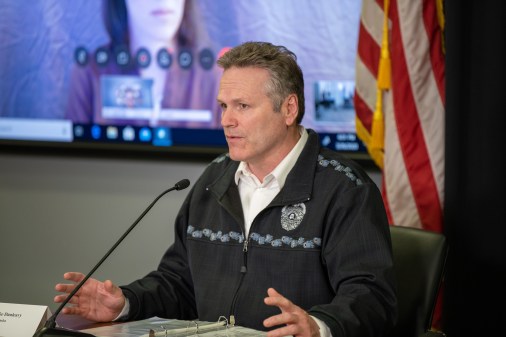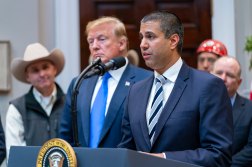FCC vote could help close ‘homework gap’

Lifeline is about to get a helping hand from the Federal Communications Commission.
After months of hearings and raising awareness through blogs, media and events, the five commissioners are scheduled to vote on March 31 to officially modernize a program for low-income consumers to receive subsidies on their phone – and, now, broadband – service. The move could help thousands of low-income students and families get online to complete schoolwork at home.
It’s a major upgrade for a program that started in 1985 during the Reagan administration.
“Lifeline modernization is a critical piece of our agenda,” said Gigi Sohn, counselor to FCC Chairman Tom Wheeler, at the New America Foundation. “The revitalized [program] can help tackle the biggest barrier to broadband adoption: cost.”
For more than three decades, low-income Americans have been able to receive a monthly subsidy of $9.25 for landlines and wireless phone and communication services.
Starting in December, there will be a phase-in of mobile broadband minimum service standards so providers have time to adjust to the new business model. The amount of 3G data will eventually increase from 500 MB to 1 GB and beyond.
Starting in 2019, Sohn said, providers would have to offer bundled voice and data plans that meet Lifeline’s minimum service requirements.
“We believe three years will be enough time for the market to adapt,” she said. “Voice service will continue to be an important part of Lifeline, but we also believe low-income Americans must have access to broadband as well.”
The issue has been spearheaded by Commissioners Jessica Rosenworcel and Mignon Clyburn, both Democrats who argue that children desperately need Internet connections at home to do their homework as teachers increasingly assign lessons online.
Currently, Lifeline only has a 33 percent utilization rate. Advocates of the program are trying to raise more awareness of the new service in hopes of getting more people to take advantage of the subsidized program.
James Steyer, CEO and founder of Common Sense Media, a digital citizenship organization, praised the FCC’s move.
“Too many people today – including millions of young students – still cannot access those essential tools at home, where so much learning takes place,” he said in a statement. “We applaud the FCC’s draft Lifeline order because it will take America a critical step closer to eliminating the gaping divide between today’s digital haves and have nots.”
Reach the reporter at corinne.lestch@edscoop.com and follow her on Twitter @clestch and @edscoop_news.




